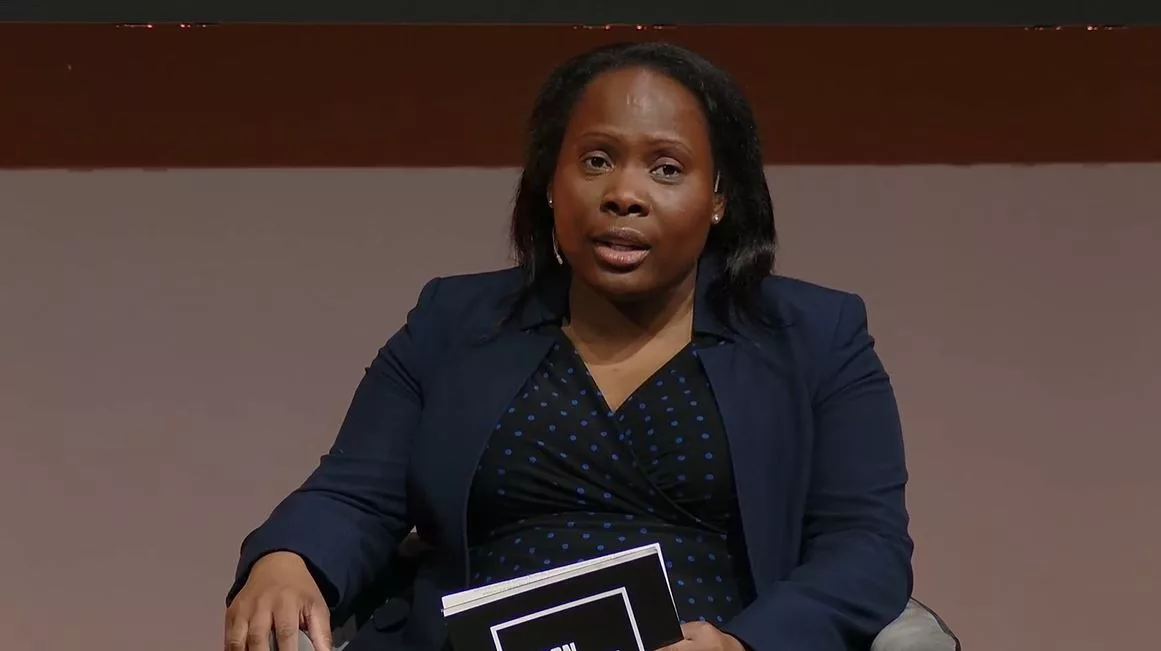Digital Products

Artificial Intelligence and Blockchainare two of the most frequently used buzzwords over the past 12-24 months, and for a while (and probably still today) a company only had to mention either word to investors to generate interest and send stock prices soaring.
But while it’s tempting to be cynical about this zeitgeist, there’s a good reason why either concept has such a strong case: the hype is justified.
Naturally, the AI-enhanced blockchain sessionLondon Blockchain Conference 2024was one of the most well-attended sessions on day two. Two leaders took to the stage to discuss the transformative potential of integrating artificial intelligence into blockchain operations. Ijeoma Okoli, Director of Digital Economy Initiatives, joined moderator Stefania Barbaglio, Founder of Cassiopeia.
Okoli is a former finance lawyer with extensive regulatory experience in the U.S. and the U.K., and evaluates these two technologies from that perspective. Barbaglio starts with the difficult question of how AI can help blockchain become more efficient.

“Sometimes people talk about these emerging technologies as solutions to solve problems,” Okoli said. “To some extent that’s true, but in other ways it’s not true.”
“Blockchain has been around for a while and we know that traditional financial services players have adopted blockchain as well as the native crypto sector. But with the birth of ChatGPT and the explosion of AI in 2022, people are now looking at the problems within blockchain and how AI can help solve some of those problems.”
One of those problems isScalabilityTransaction speed is limiting blockchain’s growth, Okoli said.BTC and Ethereum: BTC processes an average of 7 TPS, while ETH processes 30 TPS. Payment service providers in financial services are far ahead of them. Visa (Nasdaq:V) processed 6,800 TPS, which is a huge difference. Not only that, but transactions speeds for BTC, ETH, etc. are usually very slow during periods of high congestion.
Okoli said that given AI’s ability to analyze data and use it to make predictions, the technology could prove useful for predicting periods of congestion within the blockchain ecosystem.
As another example, Okoli looks at Ethereum’s sidechain solutions, which are usually referred to as one of two types of “rollups”: zero-knowledge rollup and optimistic rollup. The former allows transactions to be verified off-chain and thenZero-knowledge proofsIn the latter form, all transactions are assumed to be authentic unless a verifier disputes their validity. Okoli says such verification can take up to two weeks. Outsourcing this verification to AI can significantly reduce this processing time.
, it can also be audited.<a target=)
The same can be said about fraud detection. Okoli gives the example of the Ethereum hack last year. In April,Ethereum AbuseIn blockchain, validators exploited the vulnerability to steal $25 million. It’s important to note that this was the first exploit of its kind, and the vulnerability in the post-merge validation process was only discovered when it was exploited. So Okoli says AI could be used before bad actors audit and detect vulnerabilities, but it should also help detect exploits after they start being used to steal money.
Barbaglio then asks: “What are the challenges of integrating AI and blockchain?”
Perhaps unsurprisingly, given Okoli’s background, her answer was “regulation.” But now, with these two technologies already beginning to permeate the minds of lawmakers and regulators, the question becomes one of grappling with the many regulatory frameworks that have become, or are on the verge of becoming, law in the past 12 months.

“As long as people are trying to incorporate AI into blockchain systems, [EU and UK Markets in Financial Instruments] In addition to securities law, we now have to think about EU AI law and the obligations that it imposes.”
“It’s a risk-based model,” she explains, “and it bans certain things. But it has extraterritorial application. So just because you’re not in the EU doesn’t mean you don’t have to pay attention to it.”
Okoli explains that the law requires risk assessments, disclosures and cooperation with authorities, and warns that while this is the first AI-focused law, it likely won’t be the last.
Okoli also said:Sound Regulation of AIAnd blockchain shares one of the major challenges facing those technologies themselves: interoperability.
“Any time something new comes along and regulators around the world find themselves in a situation where they have to act in a race against time, they tend to find inconsistencies. This has the impact that when things are global, the activities they are trying to affect are not limited to the territorial waters of any one jurisdiction. These are global transactions.”
For artificial intelligence (AI) to function properly within the law and thrive in the face of growing challenges, it is necessary to integrate enterprise blockchain systems that guarantee the quality and ownership of data inputs, keeping data secure while ensuring its immutability.Check out CoinGeek’s coverageTo learn more about this emerging technologyWhy Enterprise Blockchain is the Backbone of AI.
Watch: Blockchain and AI – These technologies should go together

Source of this program
“This is a smart module!!”
“Ijeoma Okoli of the Digital Economy Initiative met with Stefania Barbaglio of Cassiopeia on stage at the London Blockchain Conference to discuss the potential of integrating AI into blockchain operations. […] read more……”
Source: Read more
Source link: https://coingeek.com/ai-enhanced-blockchain-ai-role-in-optimizing-blockchain-systems/